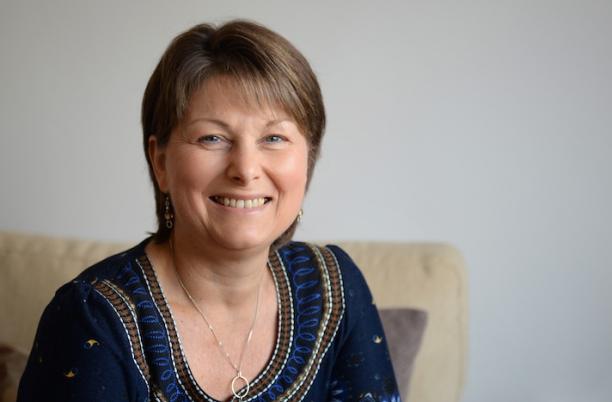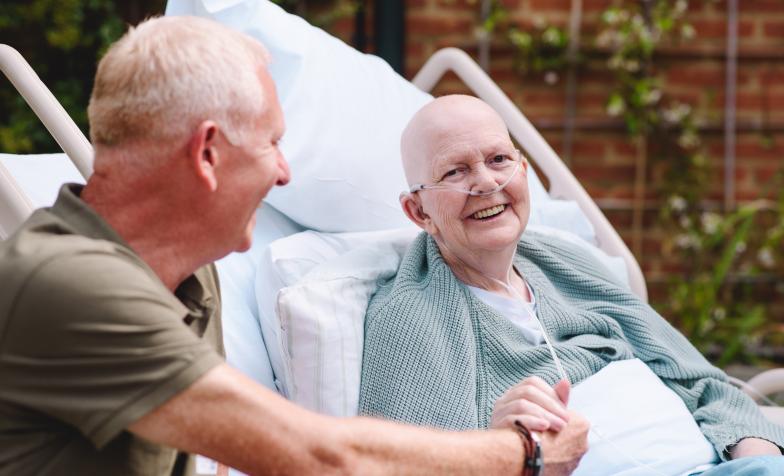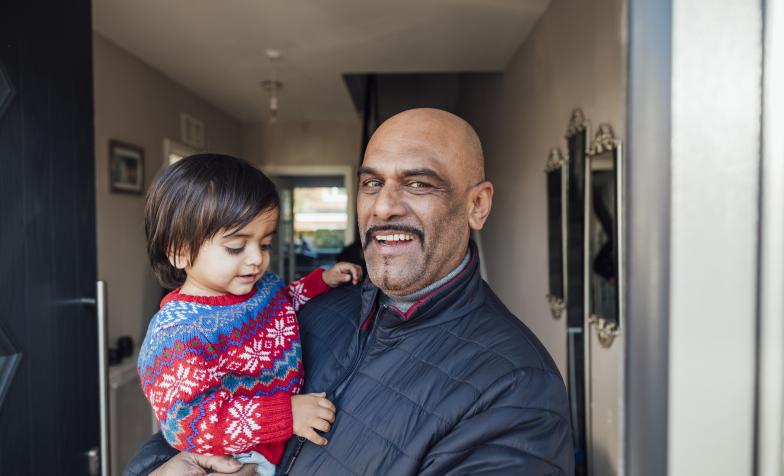

Mother-of-two Anita Almond was just 47 when diagnosed with ovarian cancer.
It’s somewhere to go and relax, but also someone to chat to. It’s like counselling at the same time. There’s more to the hospice than people think.
Anita Almond
The former hairdresser and Blackburn College tutor had been experiencing symptoms for 12 months but had just put things down to ‘getting older’.
"My sister went through the change at 45, so I just put it down to early menopause and middle age spread.
"I had pains in my left-hand side, I felt bloated, I kept needing to go to the toilet and noticed bodily changes. It wasn’t until I was able to feel the tumours in my tummy that I went to the doctors. By that time, I had two fist-sized tumours and was diagnosed with stage 3 cancer."
Within weeks Anita underwent surgery but the cancer had already spread throughout her abdomen. Surgeons have operated twice and Anita has undergone seven rounds of chemotherapy.
As a result of a drug she was prescribed, Anita was left with all over body pain and mobility issues – especially in the hips, shoulders, back and legs.
For 18 months, Anita attended hospital physiotherapy and hydrotherapy sessions, complemented by leg massages at East Lancashire Hospice to ease her pain and improve mobility.
Anita, 54, said: "I needed both medical and physical help. The hydrotherapy coupled with the massage and physio really helped. It got me through.
"I couldn’t have managed without the hospice’s help. I wasn’t really aware of complementary therapy and its benefits until then, but the leg massage was brilliant."
Since then, Anita has continued to access the complementary therapy sessions and says she finds the reflexology very relaxing and comforting.
"It’s more than just relaxation, it takes me away from a dark place. It’s more like a treat than treatment. My life is just hospitals – but it doesn’t feel like an appointment. It’s a bit of ‘me’ time.
"It’s somewhere to go and relax, but also someone to chat to. It’s like counselling at the same time. There’s more to the hospice than people think."
Last year, Anita was told she had a bowel narrowing due to cancer spread and needed further surgery, and recently found out the cancer had spread to her skull.
"I was told it wasn’t going to get any better. I’m not curable but it’s six years since my original surgery. You have to look on the bright side. It’s a case of managing it and battling through. You just get used to it."
Anita accessed the services the hospice provide in people’s home – including visits from a clinical nurse specialist (CNS).
"My nurse, has been there for support and reduces my anxiety by making things as easy as possible for me.
"If I need anything talking through with the doctors, the nurse steps in as the translator between the different services. They ring and get prescriptions and screenings arranged and intervenes where they needs to.
"The nurse has also helped me with my end-of-life plan and has been there to guide me and talk me through different options. As and when I get to the stage that I am end of life nursing staff will be there for me."
Anita has also spent time at the hospice while undergoing pain management, and her regular complementary therapy sessions.
She said: "Should I need the hospice, which I probably will when the end comes, the staff there know me. I have been a visitor for four years. It’s comforting to know that I won’t be in a strange place."
About Hospice Care Week
Hospice Care Week is a chance to join with hospices nationwide to celebrate the hard work, achievements and commitment of our hospice sector. At Hospice UK, we believe that everyone, no matter who they are, where they are or why they are ill, should receive the best possible care at the end of their life.


